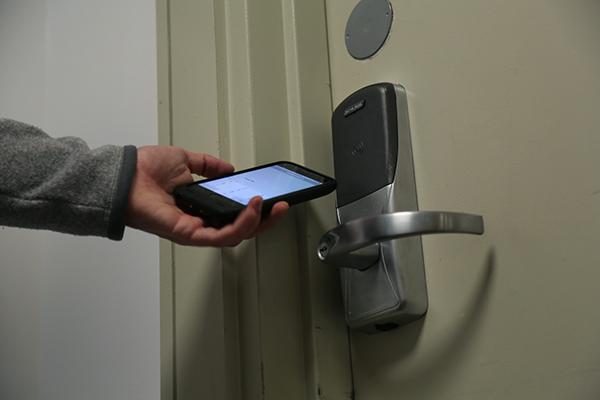Students who forget their GWorld cards might have an easier way to get back into their rooms now.
In certain residence halls now, students can test a new Mobile ID smartphone application, which is linked to students’ GWorld cards through their GW email addresses. The app will unlock individual room doors in halls where students usually tap their GWorld cards to enter their rooms.
Students who are still living in 1957 E Street, JBKO, Lafayette, Munson, Shenkman and West Hall have access to the app during the pilot program over the next three weeks.
University spokesman Kurtis Hiatt said if the pilot program is successful, it will be available for free this fall to all residents in those halls, as well as 2109 F Street and District House, which is slated to open for the fall semester.
Each student account will be assigned a four-digit pin tied to a specific housing assignment and will unlock only that door.
For safety and privacy reasons, each account can only be linked to one smartphone, according to instructions sent out to students last week.
Students will only be able to unlock their doors within a certain distance of their residence halls, Hiatt said in an email.
“Mobile ID will only work on a particular student’s room or suite door and will only work if the student is within a certain distance of the door to be unlocked,” he said.
The app won’t open exterior doors, meaning students will still be locked out of their residence halls if they do not have their GWorld cards with them.
Mobile ID accounts expire when residents change housing assignments or move out.
In 2014, the University tested a program that would have allowed students to unlock their doors by sending a text message, but Hiatt said the Mobile ID app would be “more secure and convenient” than a text-based system.
The app is available at other schools around the country including Miami and Northeastern universities, according to their facilities websites.
Others universities, including James Madison University, offer mobile ID apps for students to gain access to non-residential university buildings as well as to pay for laundry and vending services, but “in the interest of public safety,” the app won’t allow students entry to residence halls, according to its website.







